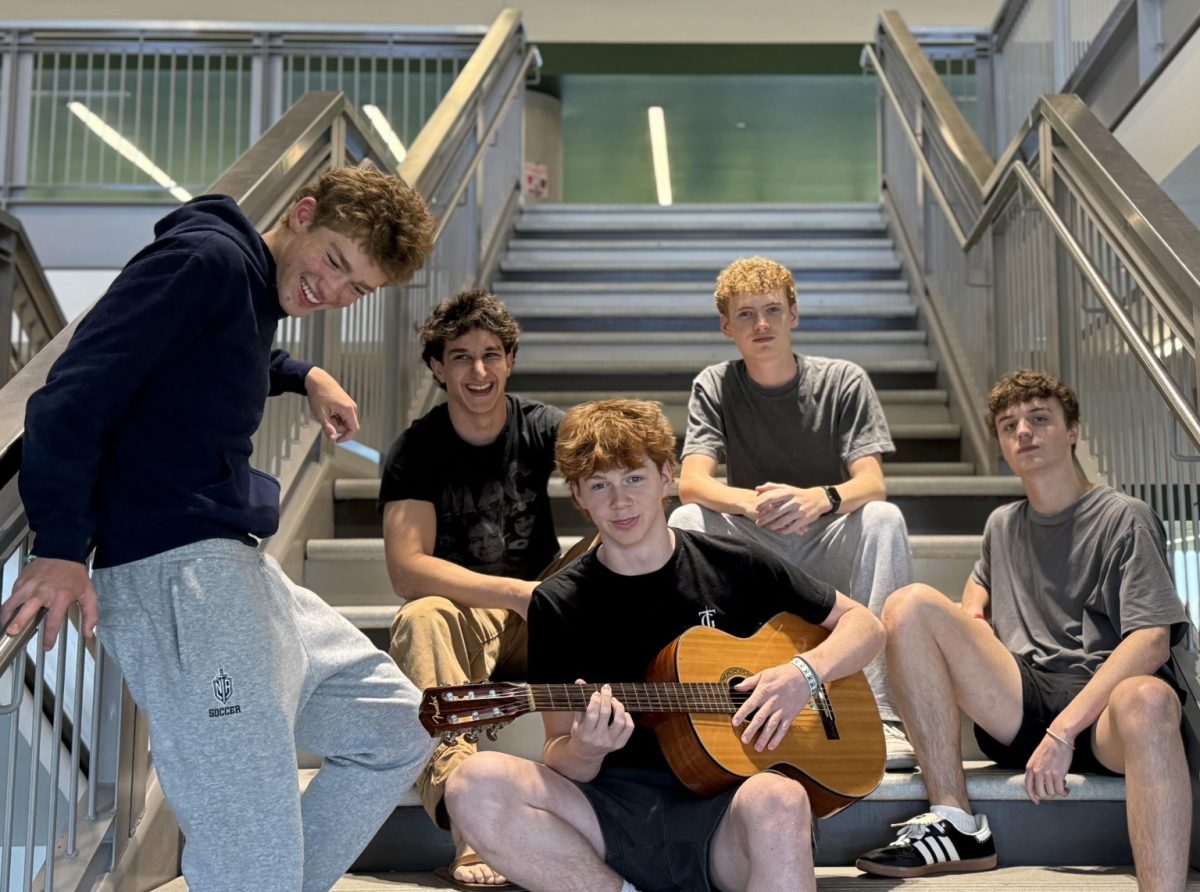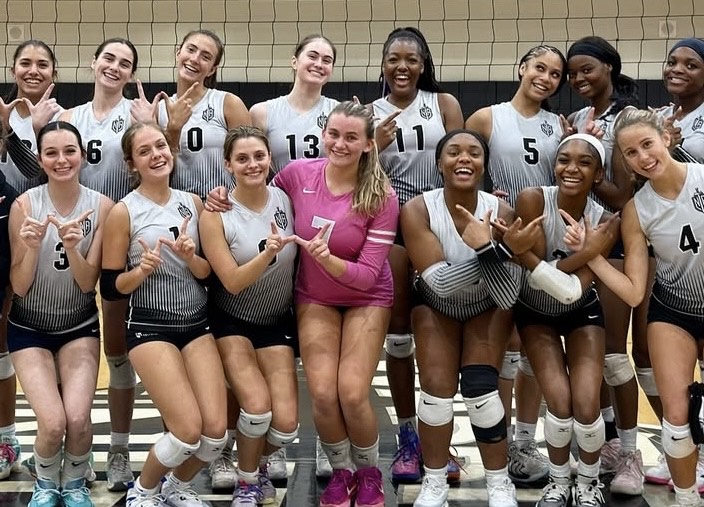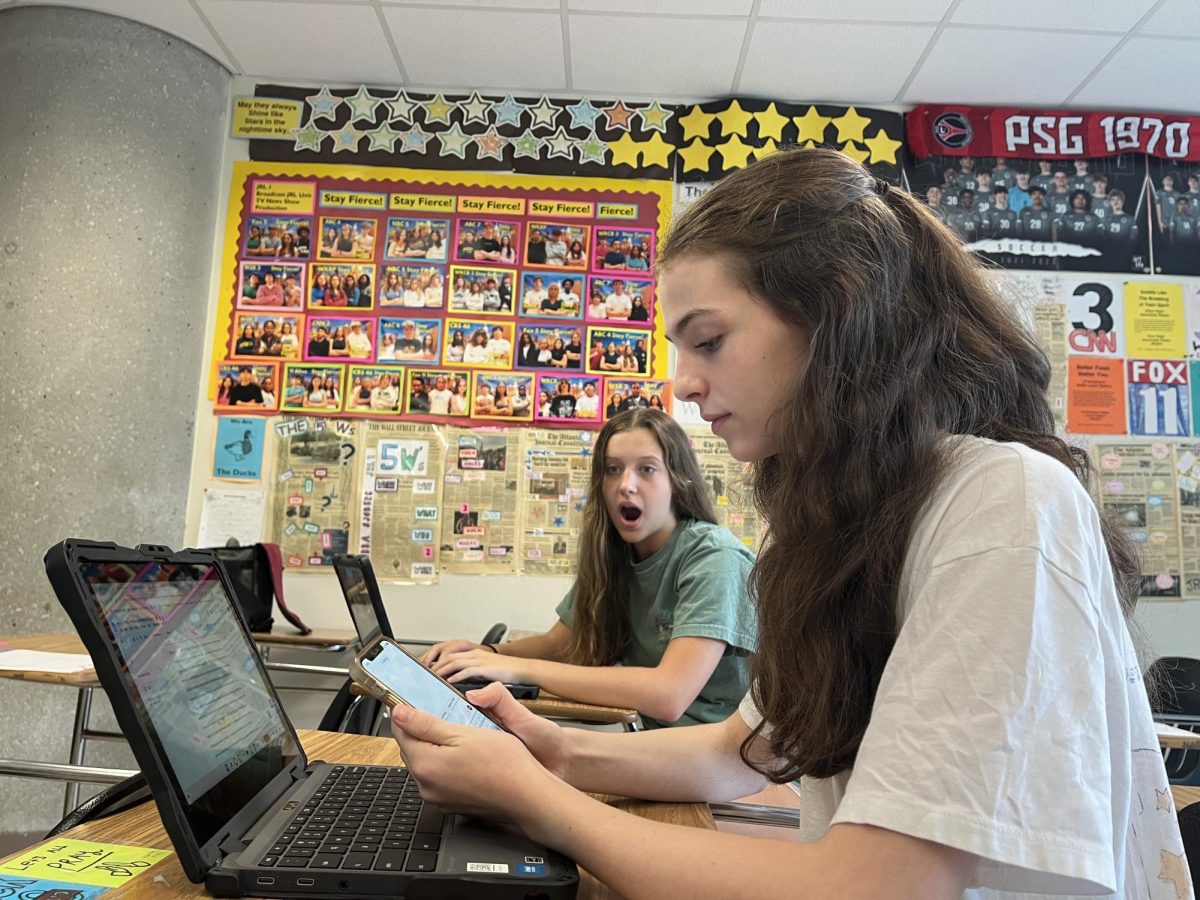Upon arrival on the first day of school, students are immediately aware of the classes where they will have to part from their beloved phones. This is indicated by the ominous presence of the blue, numbered phone-holder proudly tacked onto the wall of many North Atlanta classrooms. The debate surrounding phones in classrooms has become increasingly polarized with the rapid advancement of technology in the past couple of years. With new legislation being passed in states such as Indiana and Florida completely banning the use of cell phones during classroom instruction, North Atlanta is faced with the question of whether cell phones are helpful or a hindrance.
Students in support of keeping cell phones during class argue a variety of reasons to support their cause. Among them is junior Katherine Moss. Moss believes that her cell phone enables her to be more organized, allowing her to manage her time wisely. “From setting reminders for assignments to keeping track of extracurricular activities, my phone serves as my personal planner,” she said. “Banning phones in the classroom would completely disrupt my organizational system.”
Students also argue that allowing them to keep their phones in class teaches them responsibility and self-restraint. Junior Meyrav Malino believes that instead of the outright banning of cell phones, teachers could establish guidelines on when to use or not use phones. She says that this allows students to exercise self-control, take charge and be responsible for whether they’re learning or not. “Allowing us to keep our phones in class can help us get in the habit of making ourselves stay off them,” Malino said. “If someone’s on their phone and not paying attention, then they will face the consequences and it can be turned into a learning experience.”
Teachers, however, disagree. IB Spanish teacher Senor Williams is a proud user of the wooden phone cubby. Williams has two qualms regarding in-class cell phone use which are common to most teachers in the debate. He thinks that they are an attention-grab and a potential tool to cheat. “I love phones. I think they’re awesome, but I do think they’re a distraction which can make it hard to focus on Spanish,” Williams said. “When people have phones, the next class already knows answers before they walk in.”
The topic of phones, or “mind-control devices” as some teachers jokingly refer to them, may never be agreed upon. Regardless of the highly contrasting opinions of teachers and students, the Atlanta Public School Board or Georgia lawmakers may have the final say on this topic if they decide to follow in the footsteps of Indiana and Florida.














